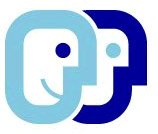Patient pressure to drive Choose and Book
- 9 October 2007
 Electronic booking may be a no brainer for any service organisation in the twenty-first century but the NHS appears to be still making heavy weather of it. However, the man in charge of driving Choose and Book forward, Dr Stephen Miller, hopes that from next year patient pressure will help to make Choose and Book the everyday method of referral.
Electronic booking may be a no brainer for any service organisation in the twenty-first century but the NHS appears to be still making heavy weather of it. However, the man in charge of driving Choose and Book forward, Dr Stephen Miller, hopes that from next year patient pressure will help to make Choose and Book the everyday method of referral.
Dr Miller argues that the catalyst for this pressure will be the introduction of free choice at referral in April 2008 which will entitle all patients to be referred to any hospital in the country – NHS or independent sector – which provides NHS standard care.
“When free choice comes in and GPs think about how they are going to find out what’s available hopefully they will realise that Choose and Book is the simplest and easiest way of doing that,” he says.
Some of the opponents of Choose and Book have argued that while they have no problem with the concept of an electronic booking service, so long as it works, there is little demand for choice from patients.
However, Dr Miller told EHI Primary Care he sees no prospect of a break in the link between choice and booking. Indeed the DH is not only focusing on free choice for elective care from April 2008 but is also examining how it can deliver greater choice in other areas such as for those suffering from long term conditions or mental health problems.
Dr Miller adds: “Choose and Book is seen as the enabler of choice and the application is already being revised to meet the free choice requirements coming in in April.”
Alongside the CaB application changes Dr Miller says the NHS Choices website is also being developed to provide both clinicians and patients with more information about hospital services countrywide.
Despite all this activity going on behind the scenes, the uptake figures suggest there are still an awful lot of GPs unconvinced about the value of Choose and Book.
Latest figures show 43% of bookings are made through the scheme while the DH remains wedded to its target that Choose and Book should be used for 90% of referrals.
Dr Miller sees the latest statistics, which have moved upwards after several months at a standstill, as a positive trend but claims there are many misconceptions about CaB which are preventing GPs from using it. Getting clinical engagement right is now critical, he adds.
The Choose and Book team have tried to counter negative publicity by publishing “myth-busting” leaflets for both primary and secondary care. Dr Miller says the team also particularly welcomed latest guidance from the BMA on the scheme which accepts that CaB is “likely to stay” and says individual clinicians need to work with it and inform its development.
There is also ongoing development of Choose and Book, led by feedback from user groups in all strategic health authorities together with a national design steering group and a national clinical reference panel, the last of which is independent on both the DH and Connecting for Health.
Dr Miller adds: “We’re doing all that but getting the message out there is more difficult.”
For the last two years GP practices have received financial incentives to use Choose and Book in the form of a directed enhanced service (DES) for choice and Booking, The original one year scheme for 2006/7 was extended after the Choose and Book team lobbied hard for the scheme to continue when GPs were threatening to boycott Choose and Book in protest at their zero per cent pay award.
This year practices’ performance on Choose and Book will be judged over six months from 1 September and Dr Miller believes that may have helped to kick start another rise in CaB usage. However, he says there will no further financial incentives following the end of March when the DES comes to an end.
PCTs have faced their own performance management incentives to raise CaB uptake although Dr Miller fears many may have found other more pressing focuses for their attention.
He adds: “Choose and Book is now into its third year and a lot of PCTs put a lot of effort into it and haven’t achieved very much. They now have different priorities such as 18 week waits.”
Dr Miller hopes the deployment of release four of Choose and Book next Apri,l alongside the training it will require, will stimulate clinicians and managers to look again at CaB. The release will not only deliver the free choice options but will also enable users to search using SNOMED codes, making it much easier for clinicians to find the services they require.
The wish list beyond release four includes: closer integration with GP systems, tertiary referrals and linked appointments. Booking into primary care has always been on the possible development list but does not have a high priority.




